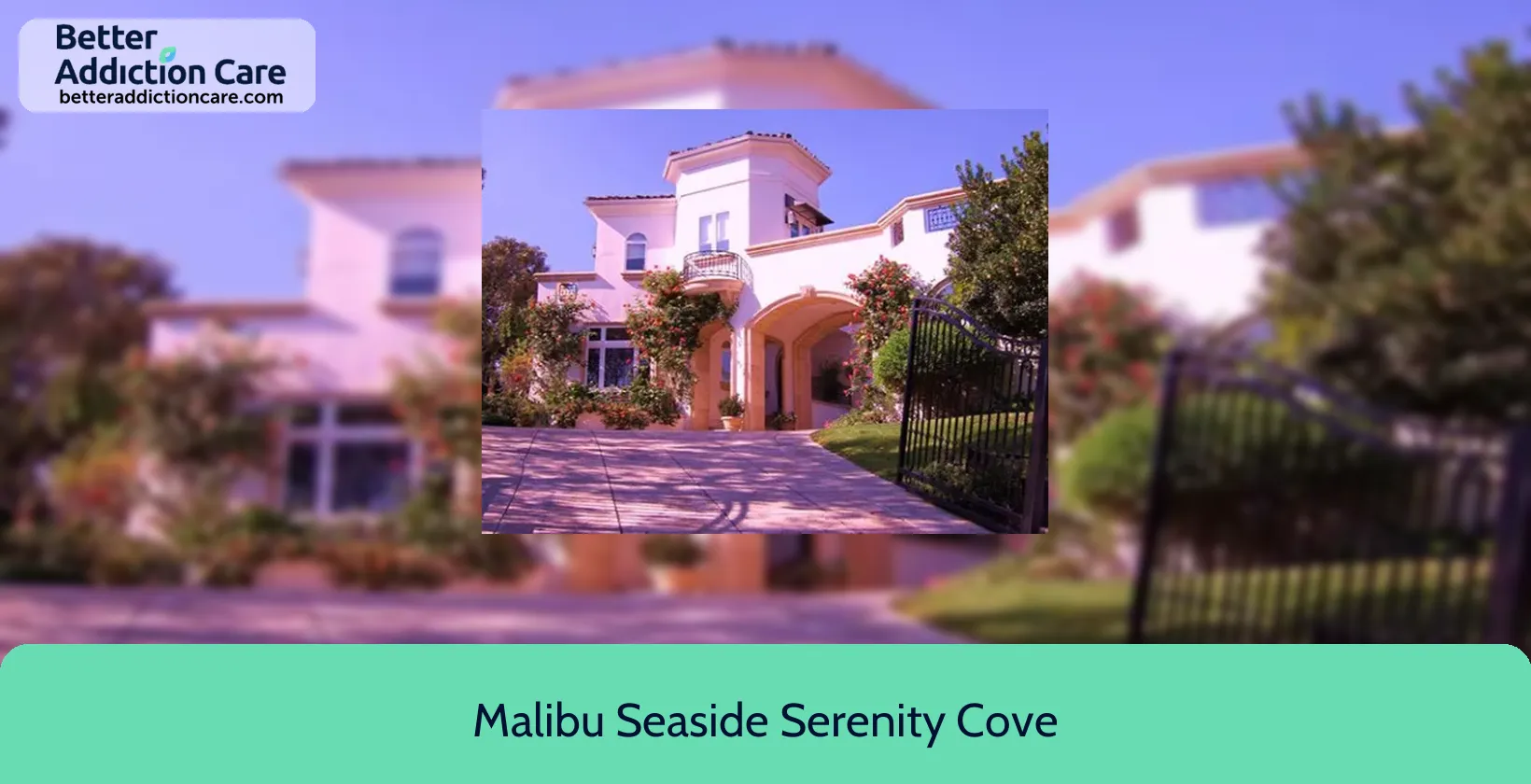Malibu Seaside Serenity Cove
Overview
Malibu Seaside Serenity Cove is a residential alcohol and drug rehabilitation center located in Malibu, California. Catering to adults aged 18 and older, the center provides a comprehensive range of services designed to support individuals on their journey to recovery.
The treatment program at Malibu Seaside Serenity Cove includes individual therapy, group therapy, and 12-Step meetings, offering a balanced approach to addressing the unique needs of each client. The center also incorporates holistic therapies and evidence-based treatment interventions. In addition, psychoeducational classes and skills-building sessions are provided to equip clients tools needed for lasting recovery.
Malibu Seaside Serenity Cove at a Glance
Payment Options
- Cash or self-payment
- Private health insurance
- Medicare
- Medicaid
- Aetna
Assessments
- Comprehensive substance use assessment
Age Groups
- Adults
Operation
- Private for-profit organization
Highlights About Malibu Seaside Serenity Cove
7.03/10
With an overall rating of 7.03/10, this facility has following balanced range of services. Alcohol Rehabilitation: 8.00/10, Drug Rehab and Detox: 6.00/10, Insurance and Payments: 6.67/10, Treatment Options: 7.46/10.-
Alcohol Rehabilitation 8.00
-
Treatment Options 7.46
-
Insurance and Payments 6.67
-
Drug Rehab and Detox 6.00
Accreditations
State department of health:

State Licenses, issued by government agencies, authorize rehabilitation organizations to legally operate within designated geographical areas. The specific licenses required for operation are typically determined by both the nature of the rehabilitation program provided by the facility and its physical location.
Registration: 190895BP
The Joint Commission:

The Joint Commission accreditation signifies that a facility has met rigorous standards of excellence in patient care, treatment, and safety. It assures individuals and healthcare professionals that the accredited facility provides high-quality, evidence-based care for addiction and mental health issues, fostering trust and confidence in their services.
Treatment At Malibu Seaside Serenity Cove
Treatment Conditions
- Alcoholism
- Opioid Addiction
- Substance use treatment
Care Levels
- Luxury Treatment
- Detoxification
- Aftercare
- Outpatient
- Hospital inpatient treatment
Treatment Modalities
- 12-step facilitation
- Individual psychotherapy
- Group counseling
- Marital/couples counseling
- Cognitive Behavioral Therapy
Common Questions About Malibu Seaside Serenity Cove
Contact Information
Read our Most Recent Article About Drug Addiction
DISCLAIMER: The facility name, logo and brand are the property and registered trademarks of Malibu Seaside Serenity Cove, and are being used for identification and informational purposes only. Use of these names, logos and brands shall not imply endorsement. BetterAddictionCare.com is not affiliated with or sponsored by Malibu Seaside Serenity Cove.










